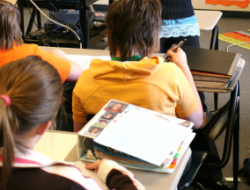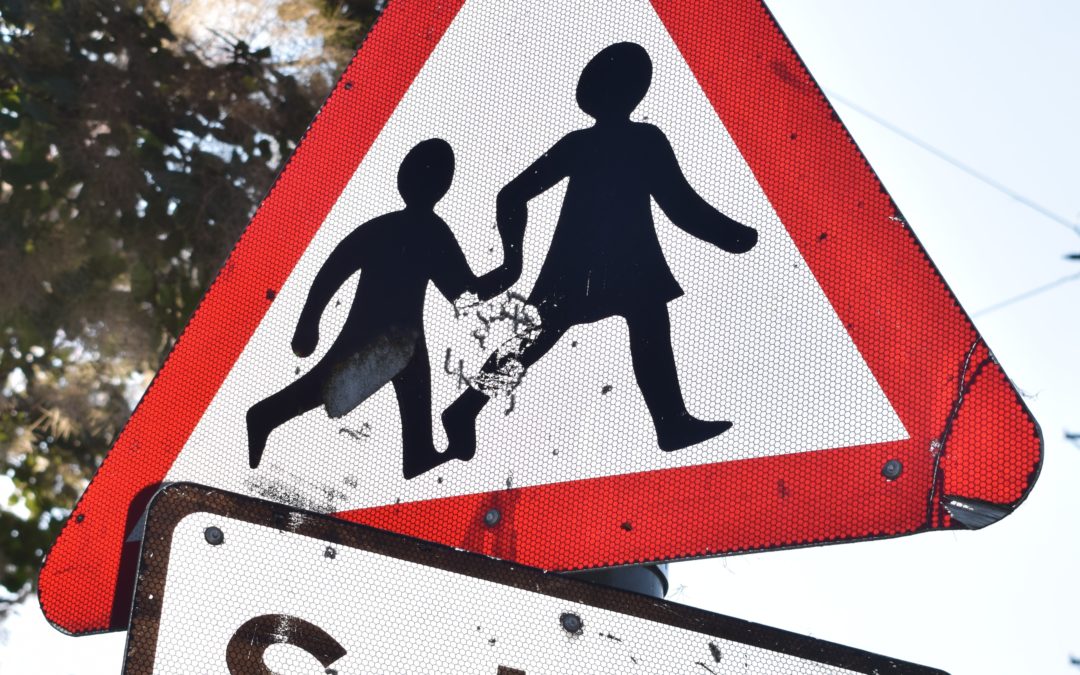 Choosing options at school can be scary and your child needs your help!
Choosing options at school can be scary and your child needs your help!
When we were younger, choosing our subject options in Year 9 was a fairly straightforward affair. Apart from good old English and Maths, you ditched the subjects you hated, kept those you enjoyed and supplemented them with a few others from the list of mainstream subjects that you thought you might get through.
Now over a decade into the 21st century, you may feel as though you need a qualification in Choosing Key Stage 4 Options, such is the breadth of opportunities available to our teenagers. Some GCSEs count for a half, others for double, triple or even quadruple qualifications. They can study mixed sciences that count for two GCSEs or take biology, physics and chemistry as separate subjects giving three qualifications. There are courses in subjects unheard of when we were young – such as Social Sciences, Manufacturing and Leisure and Tourism – and to top it all some schools even offer Diplomas, NVQs, BTECs and Young Apprenticeships.
Our kids choosing subjects and qualifications to study in Years 10 and 11 have plenty of variety, flexibility and a world of opportunity, but selecting which subjects or courses are best for them, to make the most of their skills, interests and passions, and to set them up for their long-term career can be a daunting time. They do value what their parents think, even if they don’t show it, so your support and help is vital during this process.
Maths, English and Science have to be studied at Key Stage 4 and your child’s school may make other subjects compulsory too, such as Personal, Learning and Thinking Skills (PLTS), which help them organise themselves and improve their learning and working skills; Functional Skills including practical skills in English, Maths and Information and Communication Technology (ICT); and Learning Activities, which includes Religious Education, Sex and Relationships Education and PE; but these may not lead to exams. Check the school prospectus carefully.
Every school offers a different set of options, so do check what’s available. You should receive an Options booklet from the school outlining the range of courses and qualifications offered or look for information posted on their website. Discuss the various options available with your son or daughter to find which learning pathway might interest them and match their abilities.
In years 10 and 11 students can study GCSEs, Personalised Learning Programmes, the Diploma, Vocational Qualifications and Young Apprenticeships, but not all of these may be run at your child’s school. For full details of all the Qualifications available, visit Gov.UK web-site.
- GCSEs: Schools generally offer a good range of subjects, which normally take two years to complete and are assessed via written examinations and coursework. Double award GCSEs include a broader range of topics, take up more time and are worth two full GCSEs. Certain GCSEs, such as Citizenship Studies, are short courses, taking less time and count for half a GCSE.
- Personalised Learning Programmes: Aimed at teenagers who need time and help to build their confidence and gain basic qualifications, the school will help create a programme of functional skills, personal and social development and subject learning. This will then enable your child to work towards GCSEs, the Diploma, Apprenticeship or other courses or lines of work.
- The Diploma: A new qualification based around practical work and available as a Foundation Diploma Level 1 qualification that counts for 5 GCSEs at grades D to G or a Higher Diploma Level 2 qualification equivalent to 7 GCSEs at grades A* to C. These combine a mix of classroom learning, practical hands-on experience and project work, with at least 10 days working with an employer. Subjects include Business, Administration and Finance; Creative and Media; Hair and Beauty Studies; and Travel and Tourism. The diploma is supplemented by the compulsory part of the school curriculum and there are opportunities to study for additional GCSEs and qualifications.
- Vocational Qualifications: Schools decide which work-related qualifications they will offer, such as BTECs or OCR Nationals in ICT, Business, Media or Sport. These can be studied together with GCSEs or as part of the Personalised Learning Programme or Diploma.
- Young Apprenticeships: Giving students a real taste of work while they learn, they’ll spend two days a week studying for level 2 vocational qualifications that roughly equate to 5 GCSEs at grades A* to C. Their learning is a mixture of classroom and hands-on experience including 50 days’ work experience over two years. They will also study the normal school curriculum and work towards other GCSEs and qualifications.
Whatever your child wants to do (or doesn’t want to do), encourage them to take a good breadth of subjects including both science and arts. Remind them that choosing the right subjects and achieving the right qualifications will give them a better chance of getting the career of their choice.
As Headmaster Tim Smith says, “We are educating our children for jobs that don’t even exist yet, so we cannot tell exactly what skills they will need in the future. By choosing a good, rounded mixture of subjects, you are helping them ensure that they can keep their options open”.
Because we now operate in a global economy, there are far more opportunities to work abroad or with specialists in different countries. And because the UK is far more cosmopolitan, a foreign language is beneficial for almost every line of work – from doctors communicating with foreign patients, engineers liaising with product suppliers abroad, teachers working with immigrant children or IT developers sharing information with specialists overseas, for example.
And technology is advancing incredibly rapidly in all lines of work, so a science or IT qualification will help show that they have the mindset to deal with analytical problems and logical processes. Careers including art restoration, car design, conservation, films, food technology, forensics, marine biology, music and telecommunications now all depend on scientific processes.
At this age in their development, it’s really hard to force teenagers to do anything they don’t want to do, so try to go with the flow and support them in their choices. If they’re interested in and passionate about a subject, they’re more likely to work hard and achieve more. Remember, there are many skills to be learned through subjects such as sport, music and drama – coping well with success or failure; performing and presenting in front of an audience; showing a creative flair; and working together with, supporting, coaching and leading others are all excellent assets in most business environments.
Even if they’re set on a specific career path and believe they have all the right answers, encourage your child to think about the right mix and balance of subjects and research their career choice fully. Track down someone who’s working in their chosen industry now, who might be able to offer helpful advice on developments they foresee. When I chose my options 30 years ago I was dead-set on journalism but dismissed computer studies as an option, as magazines and newspapers just used typewriters at that stage. Yet by the time I got my first job on a magazine just a few years later, everything operated via high-tech computer systems that were completely alien to me.
What’s more, your son or daughter may find that their chosen occupation isn’t everything they thought it would be and need to rethink their direction. Having a range of qualifications will increase the alternative options available to them and allow them to pursue a different career.
If this all sounds bewildering, don’t panic. Options events will be held at the school for pupils and parents, where subject teachers and careers advisers will be available to help you and your child. Talking to their teacher will help confirm that they are making choices that are right for them both academically and personally. You may discover that they’re excelling in an area that they’re looking to drop or are underachieving in key subjects that they’ve set their heart on, then you and the teacher can work with your son or daughter to decide the way forward. You’ll also have the opportunity to find out more about the different subjects and courses now available.
As a general guideline, they’ll need to study a minimum of six subjects, and in addition to the compulsory subjects they can select up to four optional subjects as a first choice. However, the option blocks offered at your child’s school may not encompass everything they want to do, or the school may not run a subject if there is insufficient interest, so they should have some second choice options in reserve. There are many ways to supplement their core subjects with additional learning. Schools now offer a wealth of extra curricular activities that can help balance a science or arts bias including Sport, Music, Drama and Dance groups as well as ICT, Maths, Language, Business and Art clubs. Or your child could join similar community groups in your local area. Local colleges will offer night schools or holiday clubs covering a range of subjects or you could choose internet-based correspondence courses.
Choosing options is a stressful time for teenagers, and it’s key that parents work together to find the best route forward for your child. Be helpful and supportive but try not to steer him or her down a particular route that you want them to do – it’s their life, after all. You can offer sensible guidance and suggestions, but don’t dictate or you’ll risk them rebelling and/or resenting you. And discuss everything with their Mum, so that you’re both in the picture and aware of the options they’re planning to take. Problems can arise even in families where parents are together if Dad’s suggesting following one course of action while Mum is convinced they should take another route. It’s a confusing enough time for our children without us parents adding to the stress!
If they’ve carefully thought about and researched their choices, chosen options that they enjoy and are interested in, and which link to a specific career path or offer them plenty of scope in the future, then you and they can really be confident that they’ve made the right choice.








